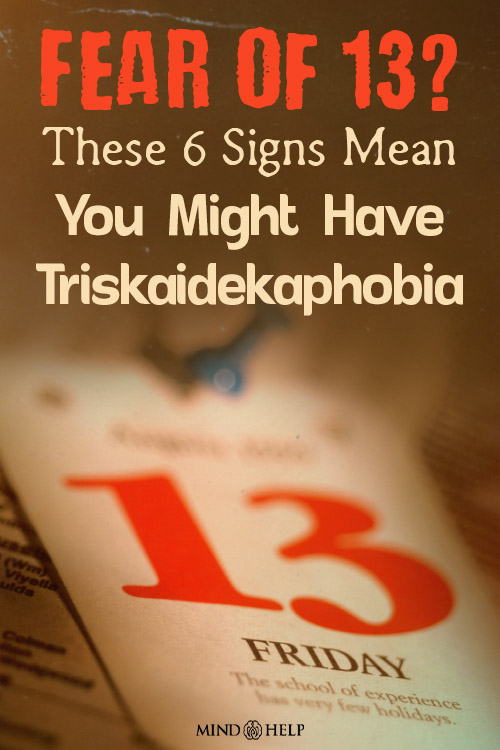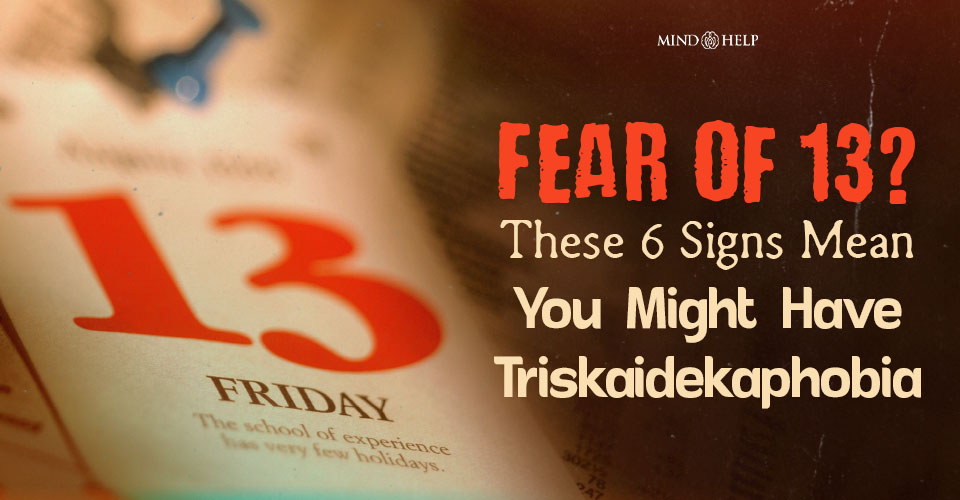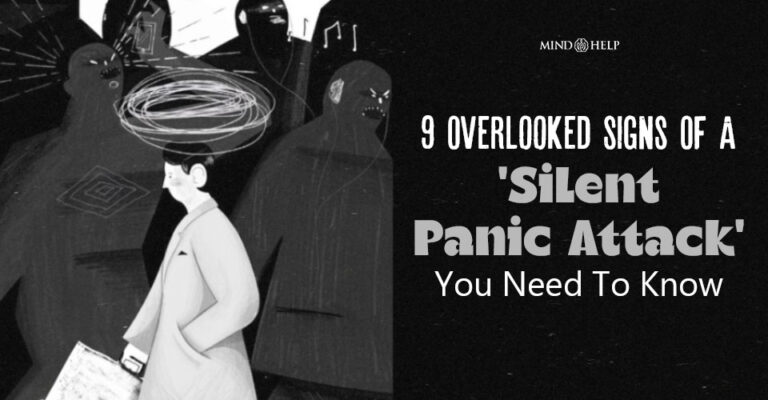Triskaidekaphobia. It sounds like a cool spell straight out of a fantasy book, doesn’t it? Well, it feels anything but cool for the people suffering with it.
This is a kind of phobia which represents an irrational fear of the number 13, and believe it or not, it has haunted and scared people for centuries now. This phobia is based on deep-rooted superstitions, and can be very hard to deal with sometimes.
To some people, it may sound silly and exaggerated, and you may ask that how can a number be scary? But for those who suffer from triskaidekaphobia, the number 13 can spark genuine anxiety and fear.
From avoiding Friday the 13th like it’s cursed, to refusing to stay in a hotel room numbered 13, this fear can quietly influence everyday decisions.
Today, in this article, we are going to dive into the world of triskaidekaphobia – what it is, where it comes from, how to recognize the signs, and most importantly, how to overcome it.
So, why don’t we start with the basics: What is triskaidekaphobia exactly?
Related: 6 Friday The 13th Superstitions You Should Definitely Avoid (Or Not?)
What Is Triskaidekaphobia?
Triskaidekaphobia is more than just an unusual word; it is a deep-seated fear of the number 13. This phobia can lead to significant distress and avoidance behaviors, and also influence decisions in your professional as well as personal settings.
The fear of the number 13 often rooted in superstitions, with many cultures considering it to be highly unlucky and inauspicious.
Whether it’s skipping the 13th row in a theater or feeling uneasy about events falling on the 13th, triskaidekaphobia can disrupt your life in profound ways.
Okay, now that we know the what triskaidekaphobia, let’s talk about the signs of triskaidekaphobia to better understand this phobia.
6 Signs Of Triskaidekaphobia
1. Avoiding the Number 13
This is arguably the most defining characteristic. People suffering from with triskaidekaphobia will actively go out of their way to avoid anything associated with the number thirteen.
This could mean refusing to stay in hotel rooms numbered 13, avoiding flights on the 13th of the month, or even opting out of social gatherings if the date falls on a Friday the 13th.
The avoidance can extend to less obvious situations, like not choosing a product that is the 13th item on a list or feeling uneasy if a group of people totals thirteen.
This constant vigilance and strategizing to avoif the number can be mentally draining, and limit freedom.
2. Feeling Anxious on the 13th
When avoiding the number 13 completely is impossible, when someone is unexpectedly confronted with it, it can lead to a surge of anxiety or even a full-blown panic attack.
This might include signs like a racing heart, dizziness, trembling, sweating, shortness of breath, or a persistent feeling that something bad is going to happen.
For example, being forced to sit in row 13 on an airplane, or realizing that an important event is scheduled on the 13th, can trigger an immediate and overwhelming physiological response.
The intensity of your reaction can be distressing and can cause a huge disruption to your daily life.
3. Disrupted Daily Life
One of the major signs of triskaidekaphobia is this. People who have the fear of the number of 13 tend to struggle with making decisions.
For example, they might change their important appointments, refuse to go to certain places, or even refuse to fly on the 13th. They might prefer to fly on the 12th or 14th, even if it meant that they had to pay more for the tickets.
This constant accommodation of the phobia can lead to missed opportunities, inconvenience, and a feeling of being controlled by their fear, significantly impacting their quality of life.
4. Physical Symptoms
Apart from behavioral and emotional signs, triskaidekaphobia can also manifest physically. When exposed to the number 13, some people may experience muscle tension, uneasiness, headaches, stomach issues and sweating.
These sort of physiological symptoms are a direct response to the number 13, which is seen as a threat.
The body reacts as if it’s in real danger, which then leads to uncomfortable and genuine physical reactions that make the phobia worse.
Related: 100+ Types Of Common, Unique and Bizarre Phobias
5. Social Withdrawal
The constant need to avoid the number thirteen can gradually lead to feeling withdrawn and isolated, socially. When someone constantly avoids social events, just because they are scheduled on a specific date, they are seen as isolating themselves.
And this act of isolating yourself instead of confronting your fear can lead to a shrinking social circle, feeling lonely, and constantly experiencing a strong sense of not belonging.
All these factors make the emotional toll of the phobia even heavier.
6. Belief in Bad Luck
People with triskaidekaphobia often have irrational beliefs surrounding the number 13; this is one of the biggest signs of triskaidekaphobia.
They might believe that seeing or encountering this number in any way will bring bad luck, misfortune, or even death.
This even includes personal superstitions such as firmly believing that certain actions can ward off the negative influence cast by this number.
These beliefs, even though illogical and unfounded, tend to control a person’s mind and exacerbates the fear even more.
Okay, now that we have talked about the signs of triskaidekaphobia, let’s explore what causes a phobia like this.
Causes Of Triskaidekaphobia
- Cultural and historical associations: Being exposed to negative religious and historical connections, for example, The Last Supper, has ingrained in people’s minds the unlucky status of the number 13.
- Folklore and superstitions: Long-standing beliefs that Friday the 13th is extremely unlucky, keep on feeding the fear in people’s minds.
- Personal negative experiences: If a traumatic event happened on Friday the 13th, it can mentally and emotionally scar someone, as a result of which, they link the number with fear and danger.
- Observational learning: Witnessing a fearful reaction to 13 in a parent or adults who are influential in a person’s life can instill the phobia, and in some cases, make it worse.
- Media portrayals: Movies and shows often use the number 13 to signify bad luck, solidifying its negative image.
- Reinforcing avoidance: Successfully avoiding 13 without negative outcomes makes the belief even stronger that avoiding it prevented something bad from happening.
- Generalized anxiety: People suffering from triskaidekaphobia are already more prone to anxiety and may be more susceptible to developing this phobia.
How To Deal With Triskaidekaphobia? 5 Strategies
The good news is that the shadow of thirteen doesn’t have to loom forever. There are effective ways to manage and overcome this fear:
1. Exposure Therapy
Think of this as gently dipping your toes into the pool of 13 rather than being thrown in the deep end. With the guidance of a therapist, you’ll gradually confront the number in a safe and controlled environment.
Maybe it starts with just saying the number aloud, then looking at it written down, and eventually perhaps even spending a few moments on the 13th floor of a building. The idea is to slowly desensitize your fear response, teaching your brain that the number 13 isn’t actually a threat.
2. Cognitive Behavioral Therapy (CBT)
This is one of the best things you can go for when it comes to overcoming the fear of the number 13. CBT can help you become an investigator of your own thoughts and feelings.
You’ll slowly learn to identify and understand the negative and irrational beliefs you have about that specific number and challenge them with logic and evidence.
For example, you might explore whether bad things always happen on the 13th or if it’s just a coincidence. When you reframe the way you think, you gradually weaken the emotional power the number 13 holds over you.
3. Mindfulness and Relaxation
Imagine having a toolkit to soothe your anxious mind whenever the number 13 pops up. Techniques like deep breathing exercises, meditation, and progressive muscle relaxation can help you ground yourself in the present moment and reduce the physical symptoms of anxiety.
When you regularly practice these things, it can help you be more resilient and make you less reactive to triggers associated with your phobia.
4. Challenging Negative Thoughts
When a thought like “Something bad will happen because it’s the 13th” arises, consciously challenge it. Ask yourself: Is there any logic or solid proof behind this fear? Has anything bad happened on the 13th before that wasn’t just a mere coincidence? What is the most likely outcome?
By actively questioning and reframing these negative automatic thoughts, you can begin to weaken the phobia’s hold over you and think in a more rational way. And this can slowly help you deal with the fear of the number 13.
Related: 5 Powerful Ways To Help You Overcome Phobias And Irrational Fears
5. Gradual Self-Exposure
You can start taking control in small, manageable ways. Perhaps consciously choosing the number 13 in a game, or deliberately reading something on the 13th page of a book.
Slowly increase the level of exposure, such as sitting in a seat numbered 13 if available, or purposefully walking past a building with the number 13 in its address. The key is to proceed at a comfortable pace, celebrating small victories, and realizing that nothing inherently negative occurs.
Bottomline
Triskaidekaphobia, while seemingly quirky, can be a genuine source of distress and trouble for many. But when you start to understand it’s roots, recognize the signs of triskaidekaphobia, and know the best ways to combat the fear, you take the first steps towards breaking free from it’s clutches.
The number 13 does not have to be a harbinger of bad luck, because with the right approach, it can simply be just another number.








